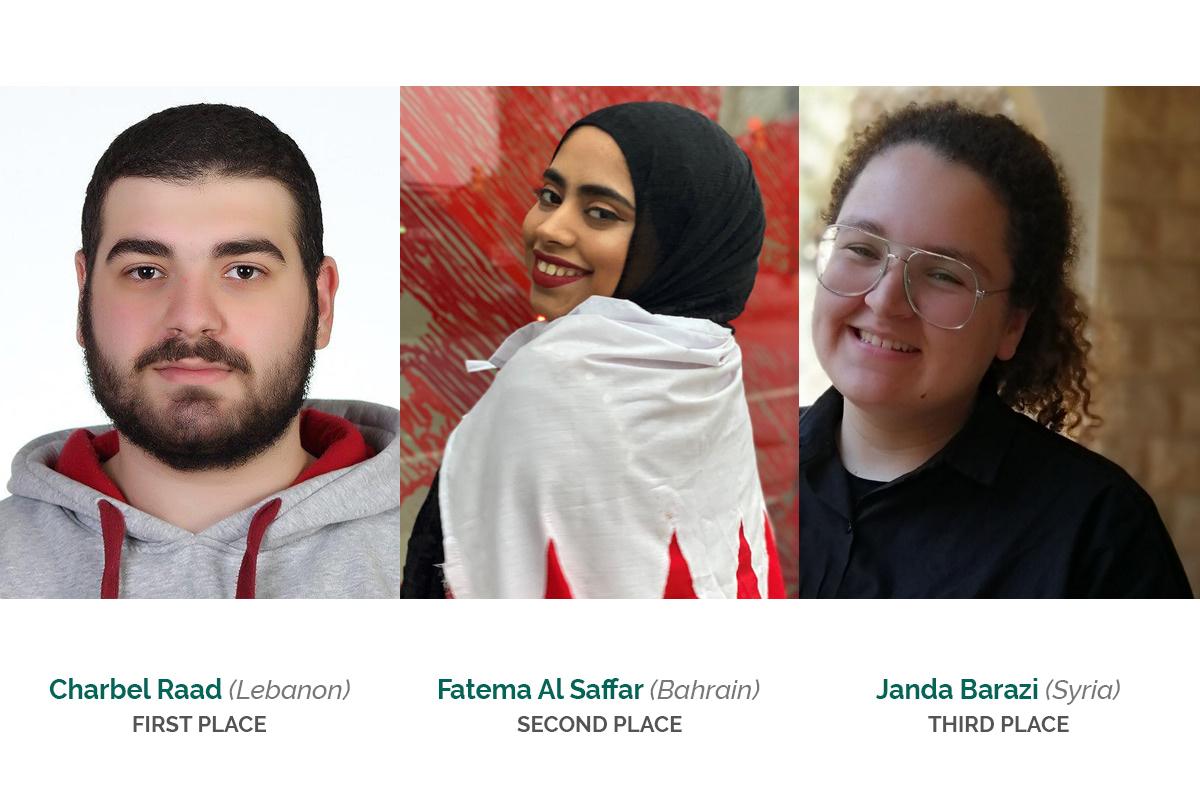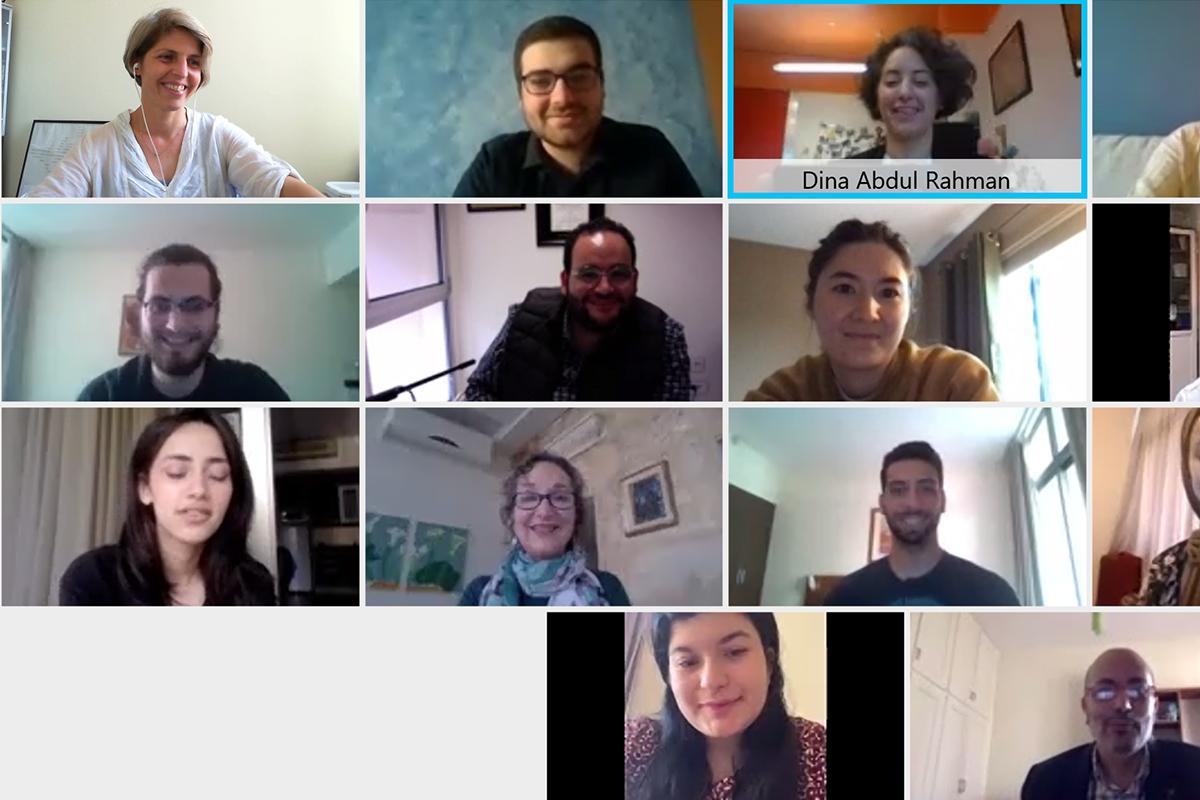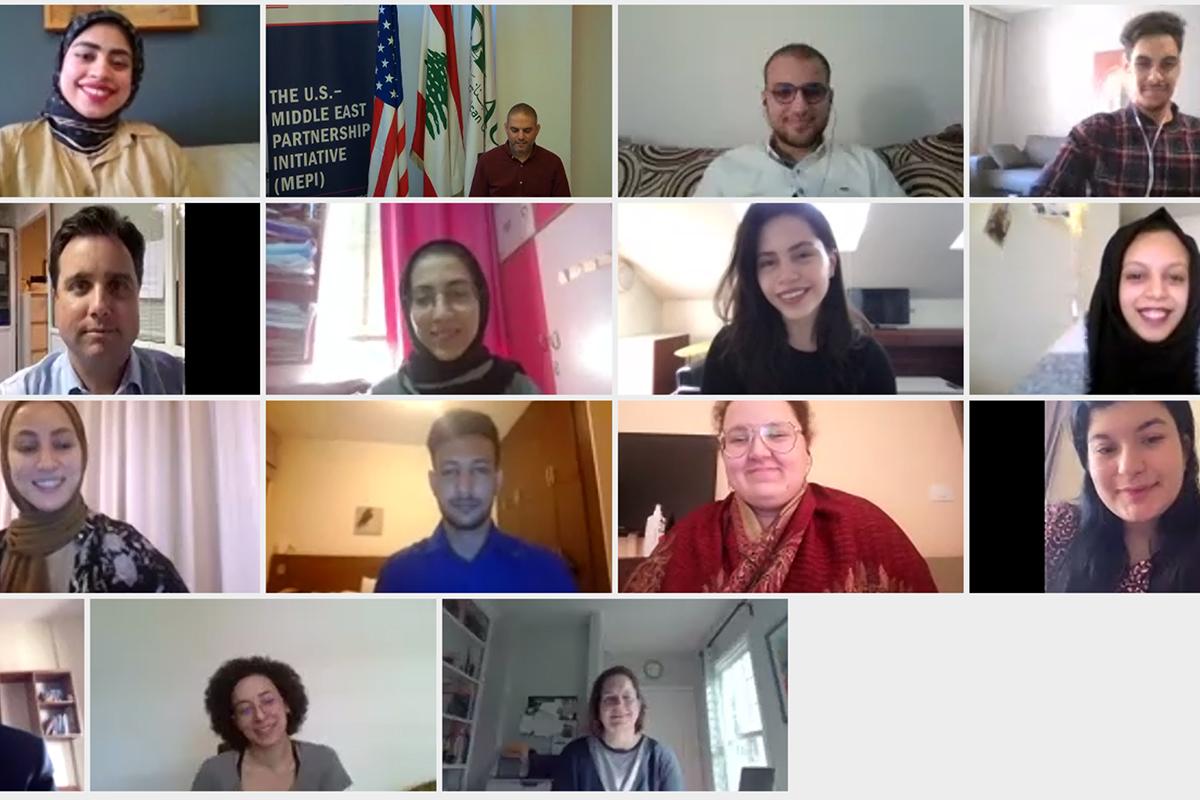MEPI-TLU Capstone Day 2021
New cohort of 31 undergraduate Tomorrow’s Leaders showcases their projects.
Every spring, LAU invites senior students of the Tomorrow’s Leaders Undergraduate Program (TLU), an initiative of the US Department of State, Middle East Partnership Initiative (MEPI), to showcase their capstone projects.
For students and their mentors, Capstone Day is a culmination of months of hard work, research and planning, as they each devise a project that contributes to the development of their home country.
This year, the pandemic and ensuing health concerns meant that the event had to be held virtually. However, as Vice President for Student Development and Enrollment Management Elise Salem pointed out, “there is no doubt that the commitment and rigor of our students and their faculty advisors remained unchanged.”
The 31 scholars, who hail from Syria, Algeria, Yemen, Lebanon, Jordan, Tunisia, Libya and Bahrain, had received full scholarships to pursue their undergraduate education at LAU, courtesy of the US Department of State’s MEPI program.
MEPI Program Coordinator at the US Embassy in Beirut Andrew Doehler congratulated the students, noting how their work “demonstrates potential for true leadership to emerge, whether in government, business or civil society.”
Indeed, the students had pitched solutions for causes they felt strongly about – from healthcare to women empowerment, education, culture preservation, sports and others. The various projects were presented along with detailed execution plans and clear budgets.
Acknowledging the massive challenges of the current academic year, Associate Professor of Computer Science and MEPI-TL Capstone Project Coordinator Ramzi Haraty felt it was “a privilege to have worked closely with this outstanding group of students, who made this year truly seamless.”
Building on this thought, MEPI-TL Executive Director Dina Abdul Rahman added that the group forms LAU’s largest graduating MEPI-TL cohort yet, and she commended everyone involved in the process on their commitment and hard work to successfully wrap up this year’s TL capstone cycle despite of all the challenges.
She then announced the winning projects as follows:
- First Place: biology major Charbel Raad, from Lebanon, for his project: “E-Cancer Clinic” – a virtual helpline that elevates the social stigma surrounding cancer patients and helps them open up and talk about their feelings.
- Second Place: business major Fatema Al Saffar, from Bahrain, for her initiative to establish classes where the elderly can engage in passing on historical craftsmanship and cultural skills to the youth.
- Third Place: political science major Janda Barazi, from Syria, for “Beit Nazek,” a center that doubles as a shelter and a development center for victims of violence against women.
All speakers at the event also thanked the faculty advisors who worked closely with the students to help them develop their projects: Associate Professor Hussain Hassan, Assistant Professor Berna El Rahi, Assistant Professor Tarek El Masri, Associate Professor Jordan Ludders Srour, and Assistant Professor Amr Selim.
The capstone projects were judged by three jury members: Associate Professor and Assistant Dean at the School of Arts and Sciences Samer Habre, Grants Program Manager at the US Embassy in Beirut Maya Barhouche, and LAU MEPI-TL alumna Tahani Husain (BA ’20), who had won first place for her capstone project last year.
Dr. Salem thanked MEPI and the American people for their generosity in “supporting access to leading higher education, helping spread democratic values, advocating for gender equity, and doing so much for youth across the MENA region.”


